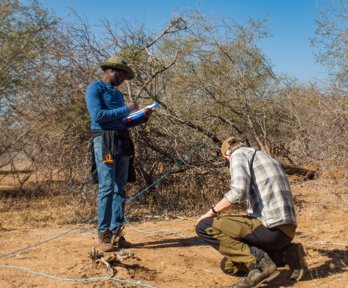
Choose a PhD
Are you passionate about geography and interested in pursuing advanced research in this field? A geography PhD can be a rewarding and intellectually stimulating journey. This page will provide you with step-by-step instructions on how to apply for a Geography PhD programme in the UK.
Step 1: Define your research interests
Before embarking on the journey to pursue a Geography PhD in the UK, take the time to define your research interests and aspirations. Consider the following:
- What specific area of geography interests you the most?
- Are there particular research questions or problems in geography that you are passionate about addressing?
- What are you long-term career goals, and how will a PhD in geography help you achieve them?
Step 2: Research your options
With potential supervisors in mind, continue in your research on Geography PhD programmes and institutions.
Geography PhD programmes in the UK come in various forms. Some are advertised projects with predefined topics (often with funding attached), while other are independent, allowing students to propose their research. Doctoral Training Partnerships (DTPs) offer structured training alongside research.
Another distinction between is between PhDs by publication, where students compile published articles, and traditional PhDs by thesis, where research is presented in a single document. It is worth thinking about your long-term career ambitions and reflecting on which of these routes will be best for you.
Here are some places where PhD projects are advertised:
- FindaPhD.com: use this website to search for available Geography PhD opportunities in the UK.
- Jobs.ac.uk: This platform also offers a search feature to help you find Geography PhD positions.
- RGS-IBG Research Groups: Join one or more of the RGS-IBG Research Groups and subscribe to their email lists. This can be a valuable away to connect with potential supervisors who share your research focus.
- The Quaternary Science Research Association's Newsletter: Subscribe to this newsletter to stay updated on the latest Geography PhD opportunities.
- International geography PhD applicants should research their desired programs and understand specific admission requirements, including English language proficiency exams like IELTS or TOEFL. International applications should factor in Visa requirements and application deadlines, ensuring they follow sufficient time for processing.
Step 3: Identify potential supervisors
If you're not applying for an advertised PhD project, it's crucial to identify potential supervisors who align with your research interests. Finding the right supervisor is essential or the success of your research project.
To find and approach a potential PhD supervisor, start by thoroughly research universities and their geography departments to identify faculty members who expertise aligns with your research interests. Looking at their publications can be a good way to understand if their research aligns with yours. Some academic's webpages will also give details of PhD students they are currently supervising.
Once you have identified a potential supervisor, its time to write to them. Craft a concise and compelling email to introduce yourself, your research interests and your intention to pursue a PhD under their guidance. Express your appreciation for their work and inquire about their availability and interest in supervising your research. Ensure your email is well-structured and professionally written. Be ready to discuss your ideas further if they express interest.
Step 4: Understand postgraduate funding
Funding your PhD is a crucial aspect of your application. The UK offers various funding options for postgraduate research students. Propects.ac.uk is an excellent resource for understanding postgraduate funding. Here are some key points to consider:
- Research Council funding: In the UK, government-funded Research Councils provide financial support for PhD students. Explore the options available through Research Councils, such as the UK Research and Innovation (UKRI) for geography-related research.
- Scholarships and grants: Many universities and organisations offer scholarships and grants to support PhD students. Research funding opportunities that align with your research interests.
- Self-funding: If you can't secure external funding, consider self-funding you PhD. Universities may also offer payment plans and part-time study options.
- The Society has a list of scholarship opportunities for underrepresented students.
- International applicants should also check which funding schemes are available to international students.
Step 5: Check you meet admission requirements
Each university and geography PhD programme may have specific admission requirements. Generally, you may need:
- A strong academic background, usually a first-class or upper second-class degree in geography or a related field and/or a strong master's degree, though relevant professional experience might also be counted.
- A well-defined research proposal that aligns with your prospective supervisor's expertise and the university's research priorities.
- References from academic or professional sources who can attest to your ability to conduct research.
- English language proficiency test scores (e.g. IELTS or TOEFL) if English is not your first language.
Step 6: Prepare your application
Once you've identified suitable programs, potential supervisors, and funding options, it's time to prepare your application. Applications often include:
- A well-crafted proposal outlining your research questions, methodology and anticipated contributions to the field.
- A detailed CV showcasing your academic and research experience.
- Academic transcripts and certificates.
- Letters of recommendation from professors or employers who can speak to your academics abilities and research potential.
- English language proficiency test scores (if required)
Most universities in the UK have online application systems. Follow the application instructions provided by your chosen institution, paying close attention to application deadlines.
Applying for a geography PhD in the UK can be a rewarding experience with the right preparation and research. Utilise the resources mentioned in this guide to find opportunities, understand funding options and navigate the application process successfully. Remember that perseverance and a strong commitment to your research are key to your success in the world of academia. Good luck with your Geography PhD journey!

PhD grants
We have a range of grants available for PhD students.

Support for postgraduates
Find out more about our support for current postgraduate students, including networking, advice and resources, and funding and opportunities.

Higher Education resources for geography
Browse resources for higher education providers, both from the Society and other organisations
